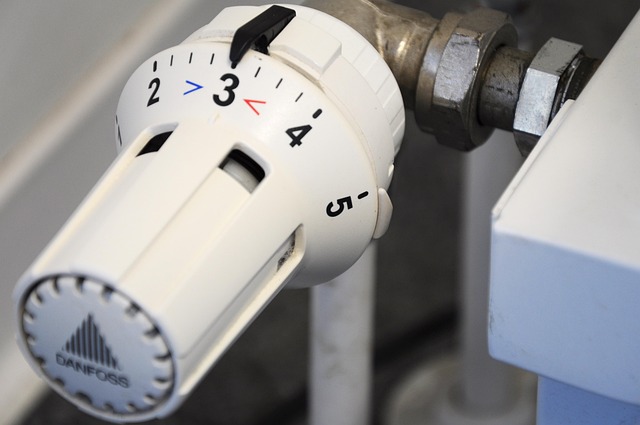Combi Boiler Installation: A Comprehensive Guide for Canadian Homeowners
Installing a new combi boiler is a significant investment in your home's heating and hot water system. This guide will walk you through the key aspects of combi boiler installation, helping you make informed decisions for your Canadian home. A combi (combination) boiler is an efficient, space-saving heating system that provides both central heating and hot water on demand. Unlike traditional systems with separate water tanks, combi boilers heat water directly from the mains supply as needed. This design eliminates the need for a storage tank, making it ideal for homes with limited space. Combi boilers use natural gas, propane, or electricity to heat water quickly and efficiently, distributing it through your home's radiators or underfloor heating system.

What are the benefits of installing a new combi boiler?
Installing a new combi boiler offers several advantages for Canadian homeowners:
-
Energy efficiency: Modern combi boilers are highly efficient, potentially reducing your energy bills and carbon footprint.
-
Space-saving: Without the need for a separate water tank, combi boilers free up valuable storage space in your home.
-
Hot water on demand: Enjoy instant hot water without waiting for a tank to heat up.
-
Improved heating control: Many new combi boilers feature advanced controls for better temperature management.
-
Reduced maintenance: With fewer components than traditional systems, combi boilers often require less maintenance over time.
What factors should you consider before combi boiler installation?
Before proceeding with a new combi boiler installation, consider the following factors:
-
Home size and hot water demand: Ensure the boiler’s capacity matches your household’s needs.
-
Existing heating system: Evaluate whether your current radiators or underfloor heating are compatible with a combi boiler.
-
Water pressure: Combi boilers require adequate mains water pressure to function effectively.
-
Energy source availability: Check if natural gas, propane, or a suitable electrical supply is available in your area.
-
Local building codes and permits: Familiarize yourself with local regulations regarding boiler installations.
-
Budget: Consider both the initial installation costs and long-term energy savings.
How long does a typical combi boiler installation take?
The duration of a combi boiler installation can vary depending on several factors, but typically takes between 1-3 days. A straightforward replacement of an existing combi boiler may be completed in a single day. However, if you’re switching from a conventional system to a combi boiler, the process may take longer due to additional pipework and system adjustments. Factors that can affect installation time include:
-
The complexity of your existing heating system
-
Whether structural modifications are needed
-
The accessibility of your installation location
-
Any additional work required, such as power flushing the system
What unique considerations apply to combi boiler installations in Canada?
When installing a new combi boiler in Canada, keep these region-specific factors in mind:
-
Cold climate performance: Choose a boiler rated for Canadian winter temperatures to ensure reliable operation year-round.
-
Energy efficiency standards: Look for boilers that meet or exceed Canada’s energy efficiency regulations.
-
Local fuel prices: Consider the long-term costs of different fuel types in your area when selecting a boiler.
-
Provincial rebates: Research available energy efficiency incentives or rebates in your province to offset installation costs.
-
Certified installers: Ensure your installer is licensed and familiar with Canadian building codes and safety standards.
Who are the top combi boiler providers in Canada, and how do they compare?
When considering a new combi boiler installation in Canada, it’s important to compare different providers and their offerings. Here’s a comparison of some leading combi boiler providers available in the Canadian market:
| Provider | Popular Models | Key Features | Efficiency Rating |
|---|---|---|---|
| Viessmann | Vitodens 100-W | Compact design, high efficiency | Up to 95% AFUE |
| Navien | NCB-E | High capacity, dual stainless steel heat exchangers | Up to 95% AFUE |
| Vaillant | ecoTEC plus | Quiet operation, wide modulation range | Up to 94% AFUE |
| Bosch | Greenstar | User-friendly controls, compact size | Up to 95% AFUE |
| Rinnai | I-Series | Wi-Fi enabled, space-saving design | Up to 95% AFUE |
Prices, rates, or cost estimates mentioned in this article are based on the latest available information but may change over time. Independent research is advised before making financial decisions.
When choosing a combi boiler provider, consider factors such as warranty coverage, local dealer support, and compatibility with your home’s heating requirements. It’s recommended to obtain quotes from multiple providers and consult with certified HVAC professionals to determine the best option for your specific needs.
In conclusion, installing a new combi boiler can significantly improve your home’s heating efficiency and comfort. By understanding the installation process, considering key factors, and comparing top providers, you can make an informed decision that benefits your Canadian home for years to come. Remember to prioritize professional installation and regular maintenance to ensure optimal performance and longevity of your new combi boiler system.




